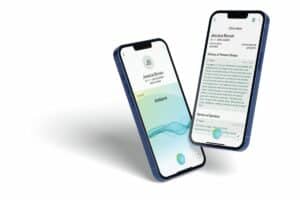Berg Insight, the world’s leading IoT market research provider, today released new findings on the mHealth market. The number of remotely monitored patients reached 56.8 million in 2021 as the market acceptance continues to grow in several key verticals. This number includes all patients enrolled in mHealth care programs in which connected medical devices are used as a part of the care regimen.
Connected medical devices used for various forms of personal health tracking are not included in this figure. Berg Insight estimates that the number of remotely monitored patients will grow at a compound annual growth rate (CAGR) of 14.2 percent to reach 126.1 million by 2027.
The three main applications are monitoring of patients with sleep therapy devices, glucose level monitoring of patients with diabetes and monitoring of patients with implantable cardiac rhythm management (CRM) devices.
The number of remotely monitored sleep therapy patients amounted to 27.5 million in 2021, driven by ResMed and Philips that together dominate the sleep therapy market. Glucose level monitoring has grown significantly in the last years and is now the second largest segment with 9.1 million connections at the end of the year.
The growth is driven by the increased adoption of continuous glucose monitoring (CGM) systems from providers such as Abbott and Dexcom. The CRM market is led by companies such as Medtronic, Boston Scientific and Abbott that started to include connectivity in CRM solutions more than a decade ago. Other device categories include ECG, telehealth, medication compliance, blood pressure monitors and others.
The demand for home monitoring solutions has grown greatly in the last years. Healthcare systems around the world have undergone a transformation to adopt to value-based care – a care model that requires care solutions to be both cost-efficient and of high quality.
Healthcare industry players have responded to this by developing data-driven solutions, such as self-engagement apps that rely on behavioural analytics to coach patients in how to manage their conditions. “mHealth and home monitoring can help ease the burden of an already strained healthcare sector, as it eases the access to patient data and both increases the efficiency and improves the quality of care,” says Samuel Andersson, IoT Analyst at Berg Insight.
As regulations and reimbursement rates have been changed in favour or remote patient monitoring solutions, the growth is expected to continue. Several European countries have started to follow the US and either already introduced or plan to introduce reimbursement for remote patient monitoring in the near future. “This trend has been going on for years, but the COVID-19 pandemic greatly accelerated the development, as it forced providers to adopt to remote patient monitoring and telehealth solutions.
This helped overcome the institutional hesitancy and conservatism that previously were a major barrier for the adoption these solutions”, concludes Mr Andersson.







